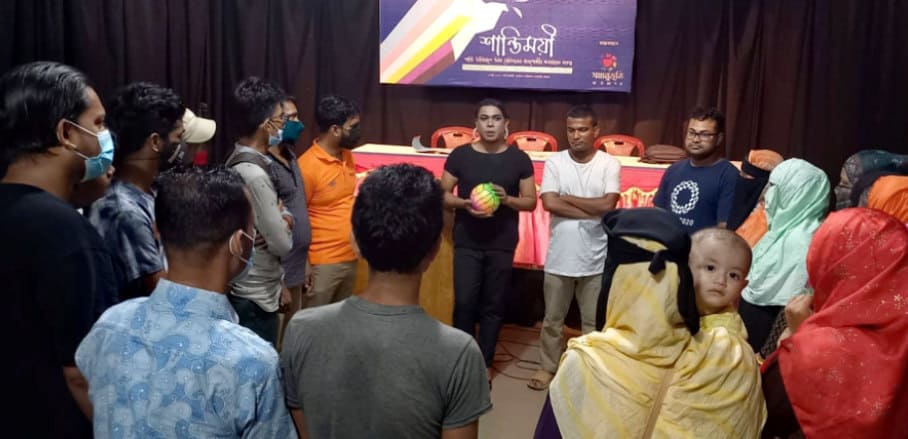How Do You Advocate for Equal Rights for LGBTIQ in Dhaka?
Consider yourself in a position where you are invisible and excluded—or where you are being considered an object of hatred by a large group of people who push you to renounce many of your identities. Or, you must confirm your entire life to the needs of others to exist. How would you feel?
Perhaps you don’t know how I feel because you have never been in this scenario. However, for nearly all members of the LGBTIQ+ community in Bangladesh, this is a common occurrence. Due to penal code 377, which forbids consensual same-sex partnerships, religious limitations, and social unacceptability, most LGBTIQ+ individuals live as invisible people, preventing the discussion of their rights at the state and societal levels.
All these factors contribute to the multifaceted obstacles to advancing LGBTIQ+ people’s equal rights in Bangladesh. On the one hand, the task is to obtain legal and societal recognition of LGBTIQ+ identification. At the same time, however, it is life-threatening to engage the broader community, political parties, religious leaders, and civil society in the advocacy process.
How Can the LGBTIQ+ Community Be Supported?
Despite these obstacles, Inclusive Bangladesh, a transgender-led community development organisation, have explored numerous alternatives and innovative strategies to campaign for LGBTIQ+ rights in Bangladesh, albeit most of them are concentrated in Dhaka due to the expansion of safe spaces. One of the essential parts of LGBTIQ+ advocacy in Dhaka is enhancing the employability of LGBTIQ+ adolescents so they can enter various employment sectors. Becoming financially independent is crucial as economic advancement enables these historically oppressed individuals to become financially independent and have a voice of their own. Not only do LGBTIQ+ persons in Bangladesh lack access to education but also to skill development and employment possibilities, therefore financial independence is of the utmost importance. Along these lines, Inclusive Bangladesh also fosters interfaith dialogue to increase public-religious knowledge of LGBTIQ+ individuals and their rights. This enables various stakeholders, including educators, local administrative body representatives, religious leaders, and community workers to engage with each other. Since dialogue allows all participants to express their feelings and opinions without fear of being judged, these discussion sessions represent less danger and threat to those active in LGBTIQ+ advocacy.
Another crucial aspect of advocacy work for LGBTIQ+ rights is to enhance the technical skills of local LGBTIQ+ community leaders, allies, and advocates, particularly in device management, digital safety, and data privacy and safety. Since the online presence of LGBTIQ+ people has increased and the visibility of LGBTIQ+ identity expressions is essential, online safety needs to be ensured. Therefore, training on digital security, on the one hand, is particularly important, while on the other hand, knowledge on creating digital content following local religious and cultural values that do not represent a threat is key to promoting positive awareness of LGBTIQ+ individuals in Bangladesh.

Transgender Women from Bangladesh Posed to Show Solidarity on IWD 2022. Courtesy: Author
Why are LGBTQI Rights Essential to Creating Safe And Liveable Cities for All?
When considering the rights of LGBTIQ+ persons in establishing safe and liveable cities for all, the promise of “Leaving No One Behind” (LNOB), the central, transformative security of the 2030 Agenda for Sustainable Development and its Sustainable Development Goals (SDGs), comes to mind.
Many LGBTIQ+ individuals in Bangladesh who are forced to escape their homes seek refuge in Dhaka and other large cities since these locales provide more living and employment possibilities. However, the rising population in cities also forces these individuals to seek inexpensive housing, resulting in eight to ten individuals sharing a single room. These unsanitary living circumstances endanger their physical and mental health and put them at risk of contracting infectious diseases. This housing issue is considerably more evident and severe for transgender groups, as most have trouble acquiring a rental home while making regular payments. A comprehensive strategy for secure and affordable housing for LGBTIQ+ community members in large cities can assist mitigate the situation. By offering various social and tax incentives, the local government can significantly encourage residents to rent to LGBTIQ+ individuals. Accepting LGBTIQ+ people’s identities and assisting them in obtaining their fundamental rights to accommodation helps foster a just and equitable society, enabling a peaceful culture.
In addition to the lack of accommodation for LGBTIQ+ individuals in Dhaka, the lack of safe community spaces is also a significant concern. LGBTIQ+ events and traditions, such as pride and IDAHOT celebrations, monthly gatherings for recreation, training, communication events, and other relevant LGBTIQ+ events enable a significant portion of the general population to learn, create, and exchange diverse ideas, thereby promoting a balanced and healthy society. These community space events and opportunities also mold the local tradition and culture to embrace tolerance and diversity, which is crucial for the sustainable development of a city.
Inclusion of underrepresented communities, such as LGBTIQ+, is more important than ever in the context of South Asia, where holistic and sustainable city development efforts currently view them as invisible. When a sizable segment of society remains invisible in development efforts, it harms each individual attempt. As we approach the 2030 Agenda’s deadline, LGBTIQ+ individuals must be prioritised for urban sustainability.
- How Do You Advocate for Equal Rights for LGBTIQ in Dhaka? - 2. August 2022
